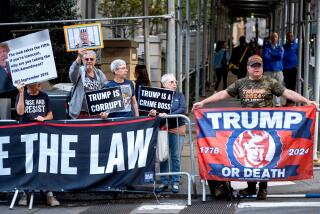The age of descent?
Some years ago, an invading army swept into the land currently known as Iraq and, in a series of swift and merciless battles, overthrew a dictator who had for decades brutalized his people and terrorized the region. The foreign conquerors were welcomed by the population. The natives, according to one account, showed “the troops the time of their lives.” For a month, they “were feted and lodged in the city’s poshest private homes and given unlimited access to wine, food, and women, including the wives and daughters of prominent citizens. Professional courtesans offered their expert services; after-dinner striptease was apparently a favorite entertainment.”
In their most optimistic moments before the 2003 invasion of Iraq, U.S. leaders may have had something like this in mind -- that, as Dick Cheney famously predicted, the invading troops would be “greeted as liberators.” But this account dates back considerably further -- to the 4th century BC, when an army under the command of Alexander the Great marched into Babylon, the ruins of which lie not far from the central Iraqi city of Hilla. That conquest, Amy Chua argues in “Day of Empire,” is a good example of what an aspiring world leader should do when seizing control of foreign lands. The United States’ invasion of this same territory more than 2,000 years later, she suggests by contrast, is a good example of what not to do.
The key difference between the two invasions is what Chua calls “strategic tolerance.” Every “hyperpower” in history, she writes, has been “at least by the standards of its time, extraordinarily pluralistic and tolerant during its rise to preeminence.” Imperial Rome and Britain, China’s Tang Dynasty, Achaemenid Persia, the United States -- in the rise to preeminence, each was more accepting of racial, ethnic and religious difference than the competing powers of its age.
Such a happily multicultural case may strike skeptics as politically correct cant, but Chua’s argument is clear-eyed and hard-headed. For most of history, tolerance has been a tactical expedient rather than an abstract principle, a way of stoking economic dynamism, increasing manpower and maximizing the efficiency of political control. “To attain and maintain dominance on a global scale,” Chua notes, “coercion is simply too inefficient, persecution too costly, and ethnic or religious homogeneity, like inbreeding, too unproductive.” In short, tolerance is a force multiplier: It enables a nation to do more with the resources it has. Great powers do well by doing good.
Chua, a law professor at Yale, made a name for herself in 2003 with “World on Fire,” which posited that the spread of free-market democracy was both exacerbating and being undermined by ethnic tensions. There is a similarly pessimistic strain to Chua’s analysis of ethnicity and national power in “Day of Empire.” At some point, strategic tolerance reaches a limit and “sow[s] the seeds of decline,” setting off a cycle of “conflict, hatred, and violence.” That ominous note is especially evident in Chua’s discussion of the U.S. She fears we may be approaching the point at which tolerant rise gives way to intolerant fall.
Chua writes with a wry, breezy wit, giving her analysis a lively accessibility, and she builds her argument around a series of enjoyable and often provocative case studies of “world-dominant powers.” Rome in its golden age, a free-trade zone with dozens of ethnicities living under an inclusive Pax Romana, may be the best known. Chua demonstrates persuasively that Rome’s willingness and ability to incorporate and assimilate streams of new peoples was central to its greatness. (The emperor Trajan, she points out, was a Spaniard whose top advisors included a Greek, a Muslim and a Jew, while Septimius Severus “was an African with a Syrian wife.”) Alexander, similarly, built his army by integrating the best commanders and soldiers from the armies he’d conquered, regardless of their ethnicity. And the British Empire owed its supremacy to the contributions of three groups that were shunned elsewhere: Jews, Huguenots and Scots “played an indispensable role in the financial and industrial revolutions that catapulted Great Britain to world dominance.”
Just as telling are the cases of “strategic tolerance” that go against the grain of historical stereotype. Genghis Khan’s barbarian hordes have gotten an especially bad rap. “Far more than their bloodthirstiness,” Chua writes, “ethnic and religious tolerance allowed the Mongols to achieve and maintain world dominance.” The Mongol army, as she tells it, looked like a casting call for a Benetton ad. Genghis Khan’s inner circle “hailed from nine different tribes and included Buddhists, Christians, and Muslims, as well as animists,” and his warriors were divided into “interethnic squads of ten, who were ordered to live with and defend one another as brothers, regardless of their tribal origin.” At a time when Pope Innocent IV was busy having heretics tortured in medieval Europe, “the Mongol Court’s approach to religion was more like that of an Ivy League university.”
Chua goes out of her way to emphasize the relative nature of strategic tolerance. Past hyperpowers may have been progressive by the standards of their day, but that does not mean that the Romans shrank from enslaving people who resisted their control, or that many British imperial policies (to say nothing of the ideology underpinning them) were not racist. Yet Chua often ignores instances of intolerance while lavishly detailing instances of tolerance -- and neglects the fact that the former often have been just as “strategic” as the latter. In the case of the U.S., she celebrates the acceptance of European migrants while glossing over the “intolerance” visited on Native Americans. (Indeed, the absorption of those Europeans was possible only because the natives had been cleared.) She highlights the benefits brought by the U.S. acceptance of Jewish scientists before and during World War II while saying nothing of its internment of Japanese Americans. In most cases, hyperpowers have believed there is a time for tolerance and a time for ruthlessness, and that strategic success depends on achieving a balance between the two.
Chua’s analysis also falters when she starts to address the turn toward intolerance -- the, as she puts it, tipping point (perhaps it is time to declare a moratorium on the use of that phrase) that marks the beginning of a hyperpower’s decline. She acknowledges the difficulty of singling out racism or xenophobia as the cause of imperial downfall but seems to make that an excuse for saying very little about how the vicious cycle of intolerance and instability begins. Strategic tolerance, Chua notes, only goes so far; eventually, it will stretch itself to the point where backlash is inevitable. But when and why does that point come? Intolerance seems to be as much a symptom of decline as its cause.
This last shortcoming is especially unfortunate because the driving question of the book is how close the U.S. is to that point -- and whether it can avoid the fate of the once-tolerant hyperpowers that preceded it. Chua, the daughter of immigrants, declares in her moving preface that her book is both “a tribute to America’s tolerance” and a warning that “today, more than ever before, we are in danger of losing our way.” The proximate cause of Chua’s fear is the war in Iraq and the ideology that drove many of its supporters. Democracy, she notes, “imposes limits on America, as compared to hyperpowers of the past.” Whatever the damage done by the Iraq war, it alone does not warrant pessimism. For the time being, the U.S. remains best able “to incorporate the world’s best and brightest,” making it the “face of strategic tolerance.” Maintaining that ability will bear as much on the future of American power as anything else.
Still, that does not mean the U.S. can defy history. The eventual decline of American hyperpower is inevitable. The question is whether we can avoid the descent into vicious xenophobia and defensive intolerance that has accompanied the fall of hyperpowers in the past. It is not a question Chua can answer, but she deserves praise for eloquently raising it.
More to Read
Sign up for Essential California
The most important California stories and recommendations in your inbox every morning.
You may occasionally receive promotional content from the Los Angeles Times.









